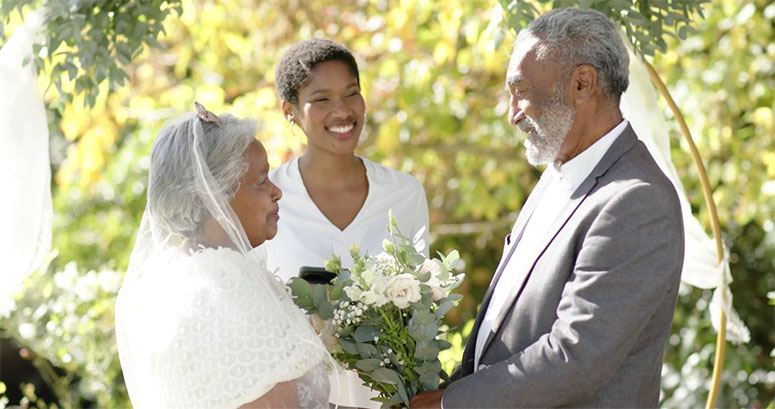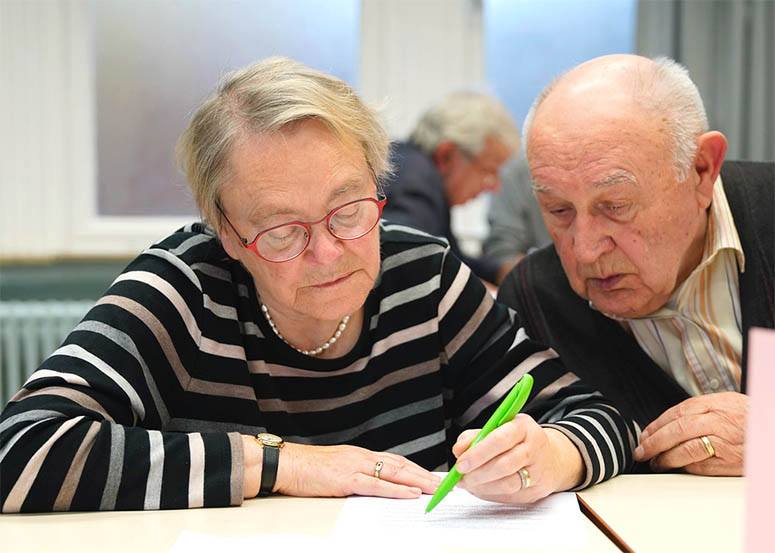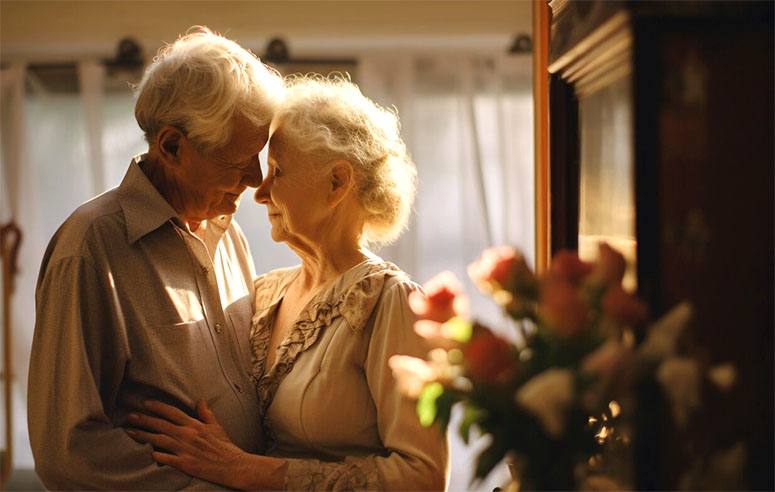Contents
Remarriage can represent a fulfilling journey, particularly for individuals over the age of 70 – however, it presents unique challenges and opportunities.
This article examines the implications of remarriage in later life, addressing questions such as, “What Are the Odds of Remarriage After Age 70?” and identifying the age range of individuals who choose to remarry along with the various factors that influence their decisions.
We analyze the likelihood of finding love again after the age of 70, considering how gender and socioeconomic status impact these prospects, as well as the numerous benefits and challenges associated with embarking on this new chapter.
Whether one is contemplating remarriage or seeking to understand the subject more thoroughly, this guide provides valuable insights and practical advice for successfully navigating this significant stage of life.
What is remarriage?
Remarriage refers to the act of entering into a new marriage following a prior divorce or the loss of a spouse.
This phenomenon frequently involves individuals over the age of 70 who are seeking companionship and emotional fulfillment during their later years.
As societal norms continue to evolve, a growing number of seniors are considering second marriages as a strategy to improve their quality of life and mitigate feelings of loneliness.
This trend reflects their resilience and adaptability in navigating changing relationship dynamics.
What is the age range for remarriage?
The age range for remarriage encompasses various life stages, with a significant number of individuals between the ages of 50 and 70 opting for late-life marriages. This trend is particularly notable as societal attitudes toward aging and relationships have become increasingly positive.
Statistical data indicates that the growing acceptance of remarriage among older adults signifies a shift in cultural attitudes, emphasizing the value of companionship and intimacy irrespective of age.
What are the factors that influence remarriage after age 70?

Several key factors influence the likelihood of remarriage after the age of 70, including emotional readiness, social dynamics, and financial considerations.
As individuals navigate the complexities of late-life relationships, a thorough understanding of these age-related factors can significantly impact their decision to pursue new romantic partnerships.
Emotional intelligence is critical in determining how individuals approach potential partners and manage the inherent complexities of relationship dynamics at this stage of life.
Couples must carefully evaluate their emotional readiness, ensuring they are prepared to engage in a supportive partnership that considers past experiences and the lessons learned from them.
Financial stability also emerges as a crucial consideration, as individuals contemplate the implications of sharing assets and responsibilities.
Furthermore, social engagement and community support can act as catalysts, offering opportunities for connection and interaction, thereby enhancing the likelihood of finding companionship and fostering a fulfilling relationship.
What are the odds of remarriage after age 70?
The likelihood of remarriage after the age of 70 can be influenced by various factors, including individual circumstances and societal trends. Research indicates that seniors are increasingly receptive to dating and pursuing romantic relationships.
As the aging population continues to expand, understanding the prospects for marriage among seniors provides valuable insights into the evolving dynamics of companionship and emotional support.
Does gender play a role in the odds of remarriage after age 70?
Gender plays a significant role in influencing the likelihood of remarriage after the age of 70, with research indicating notable differences in relationship dynamics and motivations between men and women.
Understanding how these variances impact divorce rates and subsequent romantic pursuits can provide valuable insights into the companionship needs of senior singles navigating the dating landscape.
Generally, men tend to adopt a more proactive approach, often driven by a strong desire for companionship, which may be influenced by societal expectations that encourage them to seek new relationships.
In contrast, women may approach remarriage with greater caution, taking into consideration their emotional readiness and previous experiences.
This divergence illustrates the complexities in how each gender perceives intimacy, support, and connection, thus shaping their willingness to explore new partnerships.
As social norms continue to evolve, it becomes increasingly clear that emotional preparedness is a critical factor, reflecting individual values and cultural influences that further complicate the landscape of late-life romance.
Do socioeconomic factors affect the odds of remarriage after age 70?
Socioeconomic factors significantly influence the likelihood of remarriage for individuals over the age of 70, affecting their financial stability, social networks, and overall relationship success.
As the aging population confronts unique financial challenges, it is essential to understand how these elements impact the probability of remarriage in order to foster supportive environments for senior singles.
For many older adults, financial security serves as a fundamental prerequisite that influences their willingness to pursue new relationships.
Individuals with stable income or assets may feel more confident in seeking companionship, while those who are struggling to make ends meet may prioritize financial concerns over emotional connections.
The significance of a robust social network cannot be overstated – individuals actively engaged in community activities often encounter more opportunities for connection.
Social engagement not only enhances the quality of life but also provides emotional support that can lead to successful relationship outcomes.
By recognizing these socioeconomic factors, stakeholders can develop programs focused on enhancing financial literacy and promoting social inclusivity, ultimately fostering healthier and more fulfilling partnerships in later life.
What are the benefits of remarriage after age 70?
Remarriage after the age of 70 presents numerous advantages, including increased companionship, emotional support, and an improved quality of life. Individuals often seek to experience love later in life and cultivate meaningful relationships.
Embracing a second marriage can result in heightened life satisfaction and a renewed sense of purpose during one’s later years.
Improved quality of life
One of the significant advantages of remarriage after the age of 70 is the enhancement of quality of life, as individuals often discover companionship that provides emotional support and intimacy.
This new partnership can effectively mitigate feelings of loneliness and improve overall life satisfaction.
As individuals age, the importance of a meaningful relationship becomes increasingly apparent, with emotional connections playing a critical role in one’s overall well-being.
The tenderness and affection exchanged in these later-life unions not only strengthen intimacy but also significantly enhance relationship satisfaction.
This dynamic companionship encourages individuals to engage more actively in life, participate in social activities, and develop new interests, leading to a vibrant existence imbued with purpose.
Therefore, companionship is an essential component for fostering both emotional health and a profound sense of fulfillment during one’s golden years.
Reduced risk of isolation and loneliness
Remarriage after the age of 70 plays a crucial role in mitigating the risks of isolation and loneliness, as couples often share common interests and provide emotional support, thereby fostering a strong bond.
This companionship can transform the later years of life into a period characterized by joy, connection, and enriching experiences.
The psychological consequences of isolation can be profound, frequently resulting in heightened feelings of depression and anxiety. Entering into a partnership later in life can rekindle a sense of purpose and belonging.
When individuals embark on a new union, they not only acquire a companion to share life’s moments but also gain someone who comprehends their unique experiences and emotions.
This partnership creates a supportive environment in which both individuals can flourish, rediscovering happiness and enjoyment together.
As they navigate the various challenges of aging, the emotional support provided by remarriage can significantly alleviate feelings of loneliness, thereby enhancing overall well-being.
Financial stability
Financial stability represents a significant advantage of remarriage after the age of 70, as couples frequently combine resources and share financial responsibilities, which can enhance overall wellbeing.
This partnership not only provides emotional support but also strengthens relationship dynamics as individuals collaboratively address financial considerations.
By merging their finances, individuals can improve their economic standing while establishing a safety net to protect against unforeseen expenses or economic fluctuations.
This enhanced financial security enables couples to enjoy an improved quality of life and reduces the stress often associated with managing finances independently.
The emotional support generated by this collaboration fosters a deeper companionship, allowing both partners to depend on one another for encouragement.
As they confront life’s challenges together, the value of teamwork and shared objectives becomes apparent, reinforcing the bond that give the power tos couples to flourish in their later years.
What are the challenges of remarriage after age 70?

Remarriage after the age of 70 offers several advantages – however, it also introduces a unique set of challenges. These challenges may encompass health concerns, family dynamics, and legal considerations that can complicate the adjustment process.
Successfully navigating these obstacles necessitates resilience and strong communication skills to promote relationship success.
Health concerns
Health concerns play a significant role in influencing remarriage after the age of 70, as individuals encounter various age-related issues that can impact relationship dynamics and emotional support.
Recognizing these challenges is essential for fostering a healthy and supportive partnership.
As the aging population faces chronic conditions, mobility limitations, or cognitive impairments, the emotional landscape of relationships can become increasingly complex.
For individuals entering a new partnership, it is vital to acknowledge these health-related obstacles for both partners. They must navigate not only their own health vulnerabilities but also those of their significant other.
This necessitates open communication and a commitment to providing comfort and understanding, as both partners may need to adjust their expectations and share the responsibilities of caregiving.
In such nurturing environments, love has the potential to thrive despite adversity, leading to deeper bonds that are strengthened by mutual support.
Family dynamics
Family dynamics frequently present unique challenges in the context of remarriage after the age of 70, as adult children and relatives may possess strong opinions and emotions regarding their parent’s new relationship.
Effectively navigating these emotional connections and establishing shared values is essential for fostering a harmonious family environment.
The influence of prior family experiences can introduce additional layers of complexity, as past grievances or loyalties may resurface.
Emotional intelligence is critical in addressing these nuances – individuals must recognize and validate the feelings of family members while promoting open lines of communication.
This process may necessitate discussions about expectations, boundaries, and even long-standing traditions, which can help cultivate an atmosphere of mutual respect and understanding.
Ultimately, the success of remarriage at this stage of life depends on both partners’ ability to manage these intricate family dynamics, thereby reinforcing their bond and enhancing overall relationship satisfaction.
Legal considerations
Legal considerations play a crucial role in remarriage after the age of 70, as individuals must navigate various financial implications, prenuptial agreements, and estate planning that can significantly influence the stability of their relationships.
A comprehensive understanding of these legal factors is essential for maintaining emotional support and ensuring a successful partnership.
As individuals embark on this new phase of life, it is imperative to recognize how financial decisions can affect not only their personal well-being but also their future together.
For example, well-defined prenuptial agreements serve to protect the assets of both partners and provide a sense of security, ultimately fostering trust and companionship.
Additionally, thorough estate planning can mitigate potential disputes, ensuring that both partners feel valued and respected.
By prioritizing these legal considerations, couples can strengthen their emotional bond and establish a stable environment that fosters personal growth and shared happiness.
How to improve the odds of remarriage after age 70?

Enhancing the prospects of remarriage after the age of 70 requires proactive engagement in senior dating, the exploration of dating applications, and, if necessary, the pursuit of relationship counseling to improve emotional readiness and interpersonal connection.
By embracing new experiences, individuals can cultivate romantic relationships that enrich their lives and provide meaningful companionship.
Participating in social groups and engaging in various activities represents a proactive strategy to enhance dating opportunities for seniors, as it fosters companionship and enables individuals to pursue shared interests and relationship goals.
Such environments provide a supportive network conducive to emotional connections and potential romantic relationships.
For example, book clubs and art classes not only promote mental engagement but also create a relaxed atmosphere for forming friendships.
Similarly, volunteer organizations offer unique opportunities to meet like-minded individuals while contributing positively to the community.
Engaging in activities such as dancing and gardening clubs facilitates joyful interactions, allowing seniors to bond over common hobbies.
These social settings encourage meaningful conversations and often lead to deeper connections, ultimately enriching the dating experience by prioritizing enjoyment and emotional development.
By immersing themselves in these communal activities, seniors can uncover companionship and friendship that may naturally evolve into romantic possibilities.
Utilize online dating platforms
Utilizing online dating platforms can significantly enhance the likelihood of finding companionship and emotional connection for individuals over the age of 70, as these services are specifically designed to cater to senior singles.
Exploring dating applications tailored for this demographic can open new avenues for romantic relationships.
These platforms typically offer user-friendly interfaces that emphasize safety and security, ensuring that seniors feel comfortable while interacting with potential partners.
Features such as chat rooms and video calls facilitate connection and communication at a pace that suits the individual, fostering the development of trust and mutual respect.
When seniors engage in this form of dating, they not only have the opportunity to find love but also to experience increased relationship satisfaction, as they share life experiences and passions with others who understand their journey.
This contemporary approach to companionship has the potential to transform feelings of loneliness into meaningful connections, thereby enriching their later years.
Consider professional matchmaking services
Considering professional matchmaking services can be a strategic approach for seniors aiming to enhance their dating experiences, as these services focus on compatibility and emotional support tailored to individual needs.
Engaging a professional can significantly improve the likelihood of finding meaningful companionship.
With the guidance of experienced matchmakers, clients often benefit from a more personalized journey that emphasizes their unique emotional needs and desires.
These services not only assess compatibility in terms of interests and lifestyles but also explore the essential emotional connections that can lead to lasting relationships.
The comprehensive evaluations conducted by skilled professionals facilitate the identification of potential partners who align well across multiple dimensions, thereby increasing the chances of relationship success.
By fostering genuine connections based on understanding and shared values, seniors can approach their dating experiences with confidence and enthusiasm.
Be open to new experiences and relationships
Being receptive to new experiences and relationships is essential for seniors seeking to enhance their prospects for remarriage, as it promotes emotional readiness and encourages the exploration of diverse companionship dynamics.
Embracing change can lead to new beginnings characterized by joy and connection.
When seniors approach life with a sense of curiosity, they not only increase their likelihood of finding a meaningful relationship but also enrich their own lives through personal growth and rediscovery.
By stepping beyond their comfort zones, individuals can uncover new passions, interests, and friendships that may have previously appeared daunting.
The journey of exploring varied social interactions often yields valuable insights regarding vulnerability, trust, and the significance of nurturing connections – elements that are crucial for fostering enduring companionship.
This mindset prepares seniors emotionally for the challenges and rewards of potential new relationships while promoting a more fulfilling and balanced approach to life as a whole.
Scroll down the page to view our FAQ about the likelihood of remarriage after age 70.
Embark on a journey through the world of probabilities and rare events. Expand your knowledge and curiosity by delving into our articles at WhatAreTheOddsOf.NET.



